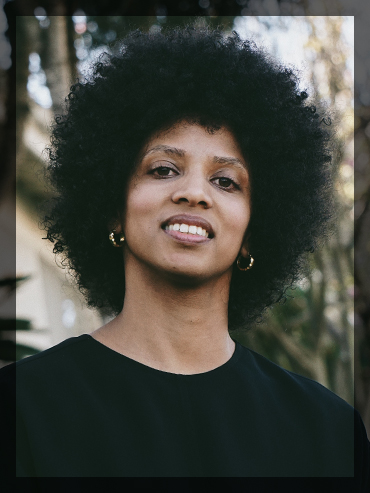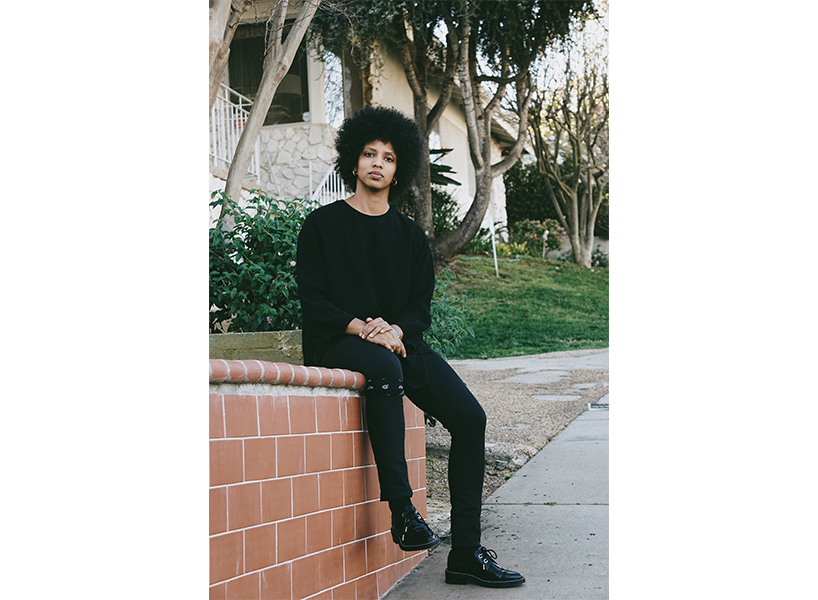It’s Time to Recognize Black Women as the Leaders They Have Always Been
Something in our society makes us celebrate and revere men, yet minimize and erase the contributions of women. But movements today are challenging that view


Long before there was Black Lives Matter or the Women’s March, there was a little Black girl who grew up on the east side of Toronto. My twin sister and I were as close as we could be despite the constant comparisons between us of who was prettier or who had a better attitude—or the distinctly Black girl experience we both navigated of being questioned by others about who had better hair. But there were subtler things, too. Like the way that we were made to police each other, which was all the more frustrating as we watched our older brother do whatever he wanted because “boys will be boys.” There was no reining in the way he dressed or expressed himself—so long as he was adopting the characteristics of being “a man.”
We were taught to be small and quiet, while our brother was taught to be big and loud. It wasn’t just at home. Even in school, we were met with stereotypes for the first time that told us we were loud because we were Black, angry because we were Black and had an attitude because we were Black. It was incredibly confusing to have everyone else try and exert control over who I was and what I should think.
I have learned my experience was not unique. To be a Black girl or Black femme is to live in a paradox: you are both hyper-visible yet invisible at the same time. And this is precisely the point at which misogyny and racism intersect to create misogynoir. The term was coined by queer Black feminist Moya Bailey in 2010; it combines the words misogyny and noir to describe anti-Black sexism faced by Black women.
Misogynoir’s role in recasting historical moments
Growing up, I read the traditions of radicalism that celebrated the singular male hero, often revising history in order to do so. Like the Martin Luther King, Jr. story without the entire Mississippi Bus Boycott—designed and executed by Black women—that helped usher in the Civil Rights era. Or, the celebration of Huey P. Newton for the Black Panther Party, while Black women like Assata Shakur, Kathleen Cleaver and countless others who kept the organization alive were minimized in many retellings.
There is something in our society that deeply venerates and celebrates men, yet minimizes and erases the contributions of women. Ella Baker, a contemporary of MLK, is in many ways the architect of many of today’s movements. She pushed back against the narrative of the singular male hero, often saying: “Strong people don’t need strong leaders.” In doing so, she created the backdrop for decentralized movements to move past the charismatic leader and instead focused on developing a united base of people driven by the same principles and values to spark change. Despite her influence, Ella Baker and other Black women heroes—like those in the Combahee River Collective—are so often pushed aside to create more space for the stories of men.
Rewriting history is not only offensive, it’s dangerous
When the celebration of one population of people relies on the subjugation and minimization of another, that is not progress. This erasure leads to very selective forms of empathy. In my experience, as an organizer, it has always been easier to get people on the streets to fight for justice for men like Eric Garner and Freddie Gray, over Black women and girls, like Rekia Boyd or Aiyana Stanley-Jones, who have met similar fates at the hands of police brutality. It is such a heartbreaking thing to know that even in moments of such injustice and tragedy, patriarchy is informing who we care about and how we show our care. It is even harder still to know when is the appropriate time to bring up a discussion like this. It’s not easy. So often, women swallow the pain and move on in the name of the greater good.
But movements today are changing that. Black Lives Matter is a women-, queer- and trans-led movement that celebrates the history of Black women and queer and trans folks. This leaderful movement has harnessed the power of the most sophisticated yet underserved and underrepresented political base in North America—and that is Black women. Black women, who make up the fastest growing base of entrepreneurs and independent business owners; Black women, who turn the tide in elections like what we saw in Alabama from the dangers of Roy Moore; Black women, who are breaking records to improve representation in political offices—like the 22 non-incumbent Black women running for the U.S. House of Representatives; Black women, who are organizing in cities throughout the U.S. to bail out Black mothers in jail who have been caught in the cycle of racial profiling.
The problem is not and has never been us. Black women, across the gender spectrum from cis to trans to non-binary, continue to do the work and lift each other up in the process. We keep each other alive. And what we seeing now even clearer than ever before is that if society really wants change—particularly during this time of increased bigotry and hate—people must finally recognize Black women as the leaders they have always been.
I feel secure in knowing that whether or not that happens in my lifetime, I know where to find us: where the work is needed most.
Janaya Khan is a lecturer, author and co-founder of Black Lives Matter: Toronto. This article was originally published on February 20, 2018.








